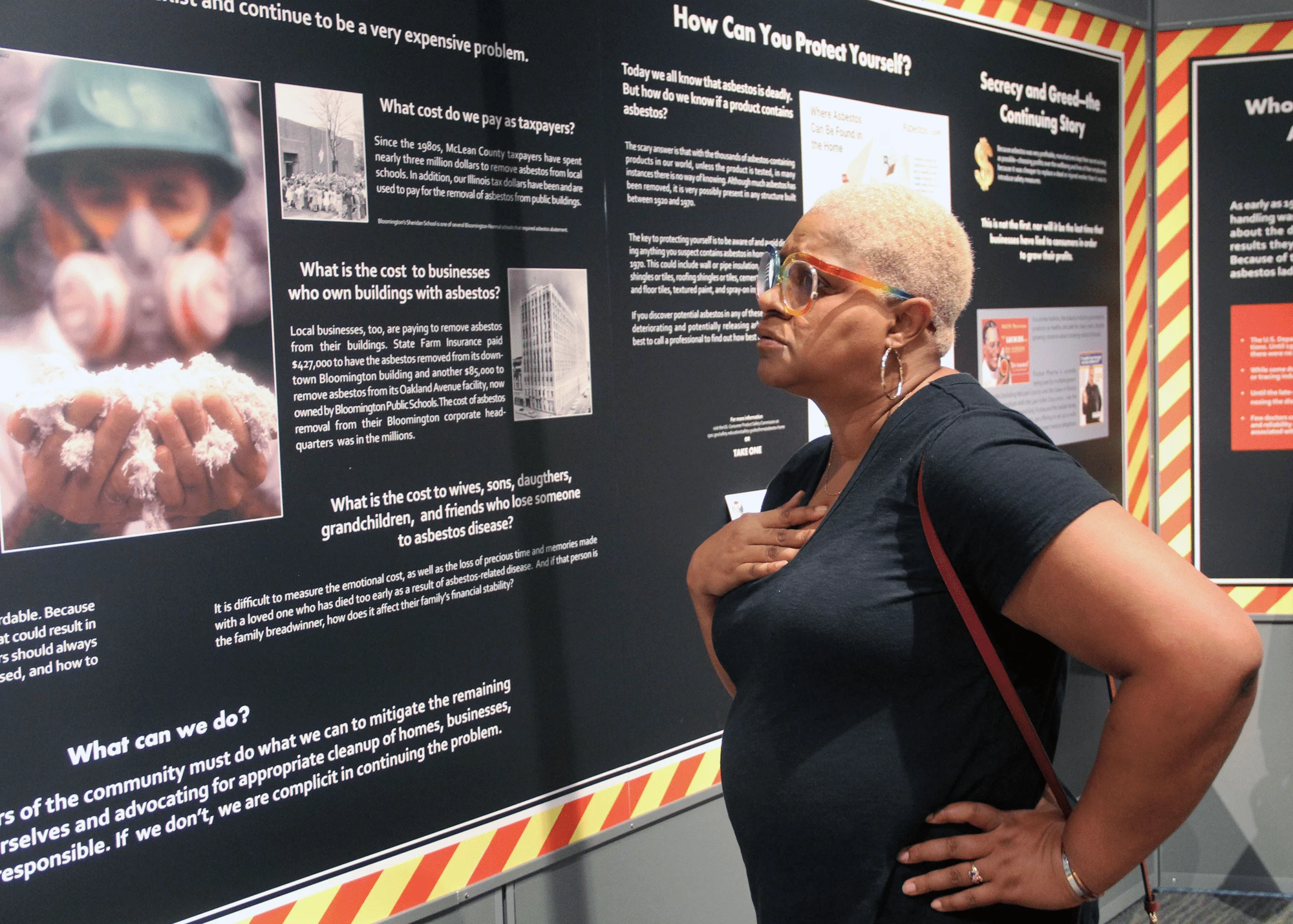
This new temporary exhibit (2024-2027) explores the history of the Union Asbestos and Rubber Company (UNARCO) manufacturing plant on Bloomington’s westside, which operated from 1951-1972. It uncovers the workers’ experience, their fight for better working conditions, and the litigation that followed.
However, this exhibit also tells a story larger than just McLean County. It is a universal story of people being sacrificed, forced to endure toxic conditions and environmental hazards all in the pursuit of profit. It illustrates a national tragedy on a local scale, all the while educating the public about the dangers of asbestos and honoring our neighbors who lost their lives.
A Deadly Deception: The Asbestos Tragedy in McLean County is on display in the Museum’s third floor Bender Gallery until the summer of 2027.
Financial support for this exhibit was provided by LiUNA! Midwest Region Laborer's International Union of North America.